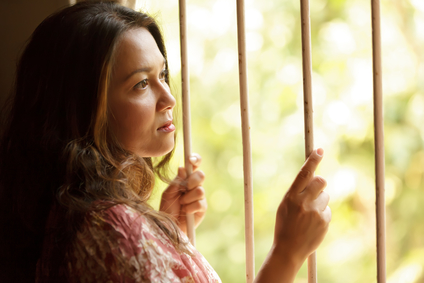Romantic relationships are a natural part of growing up as a teenager. But the changing dynamic between parent and child during this same period can make it hard to guide your teen to make good choices with their love life. Therapy can help. A therapist can guide your teenager to understand what they are feeling and protect their emotional health even in the face of increased hormones and peer pressure.
Emotionally Healthy Relationships are Just as Important as Safe Sex
“The talk” has become a rite of passage in American society – for parents and their teenaged children. Conversations about safe sex are symbols of a parent recognizing their child is growing up. But these conversations shouldn’t focus entirely on physical actions. Unhealthy relationships can cause teens significant emotional harm, too. By working with a therapist, parents and teens can learn healthy ways to communicate their feelings, define healthy emotional relationships, and learn skills to distinguish trust from infatuation.
Teens with Relationship Issues May Not Understand Social Cues or Flirting
Many teens struggle with what to do when they are attracted to friends or fellow students. They may not know how to approach the situation. Some, including those on the Autism spectrum, may not understand the non-verbal social cues. Working with a therapist can help these teens learn how to take small risks by flirting and properly interpret the responses they receive, so they can avoid public and painful rejection.
Therapy Can Teach Healthy Relationship Boundaries
Habits of emotional or even physical abuse are often learned early. While most teens know that they should not hit their partner, or let their partner hit them, they may not know where the line is between healthy emotional expression and abuse. Nor will they necessarily know what to do if their early dating partners cross that line.
Particularly when teens have a family history of abuse or have been exposed to an emotionally abusive caregiver in the past, it may take some proactive work to teach adolescents what is appropriate or inappropriate in a healthy relationship. Working with a therapist to establish relationship boundaries can help break cycles of abuse learned long before teens began having romantic feelings.
Heartache Finds a Safe Space in the Therapist’s Office
Very few teens or adults end up with their first love. Most will experience the heartache of rejection or a breakup. Parents are often quick to put things in perspective, encouraging their teens that they’ll find another love soon. However, there is also a place for grief. As teens learn how to process romantic loss and rejection, they need to know it is okay to be angry or sad, even while being encouraged about the future. For some, that grieving can happen in the therapist’s office.
When teens struggle with depression or other mental health conditions, the pain of a breakup can aggravate those conditions. A therapist can help teenagers recognize their emotional responses for what they are and bring those responses back into reasonable limits before they trigger a downward spiral.
A Psychotherapist Gives Teenagers a Safe Adult to Talk to About Dating
Adolescence is naturally a time for teens to separate their identity from their parents’. Many parents also feel awkward discussing relationships with their children. This can create an environment where teens are too proud, embarrassed, or even scared to tell their parents about their dating relationships. Still, getting advice from an adult is crucial to learning healthy ways to respond to their partner. Regular visits with a psychotherapist can help teens develop a trusting relationship with a non-relative adult. Then when they need dating advice, they will have someone specifically trained to help them with their relationship issues.
Therapy can help teens learn about healthy romantic relationships and develop patterns that will carry them through life. Particularly where a teen has other mental health or behavioral challenges, working with a therapist can be key to properly processing the hormones and emotions that come with teenage relationship issues.
David Stanislaw is a psychotherapist with over 30 years of experience. He helps children, teens and adults with emotional and behavioral concerns including relationship issues. Contact David Stanislaw to get help for your teen today.


 Recognizing Teenage Anxiety and What to Do About It
Recognizing Teenage Anxiety and What to Do About It Common Treatments for Depression
Common Treatments for Depression Are Childhood Family Patterns Affecting Your Marriage?
Are Childhood Family Patterns Affecting Your Marriage?